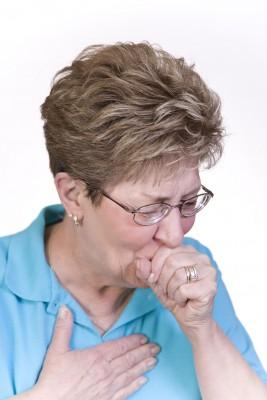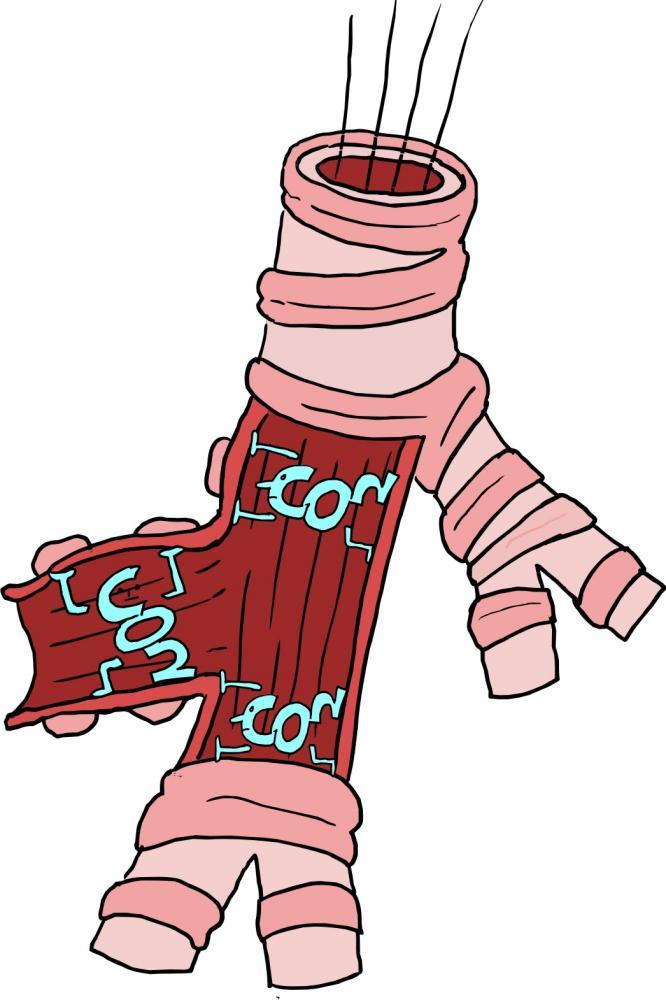- Updated on October 12, 2020
![]() By Dr. Artour Rakhimov, Alternative Health Educator and Author
By Dr. Artour Rakhimov, Alternative Health Educator and Author
 Over 250,000 asthmatics could not be wrong. Acute asthma exacerbation can be stopped with this simple breathing exercise developed by leading Soviet physiologist Dr. KP Buteyko and over 200 Soviet and Russian doctors who have been teaching the Buteyko breathing self-oxygenation technique. The home remedy helps even in cases of sports induced asthma, in most cases, to stop asthma attacks without using inhalers or other meds (bronchodilators).
Over 250,000 asthmatics could not be wrong. Acute asthma exacerbation can be stopped with this simple breathing exercise developed by leading Soviet physiologist Dr. KP Buteyko and over 200 Soviet and Russian doctors who have been teaching the Buteyko breathing self-oxygenation technique. The home remedy helps even in cases of sports induced asthma, in most cases, to stop asthma attacks without using inhalers or other meds (bronchodilators).
How to Stop Asthma Attack in 1-2 Min Without Meds – Home Remedy
 With the first symptoms of asthma (wheezing, chest tightness, dyspnea, labored breathing), sit down in any comfortable chair, couch, sofa, or divan. If there are no objects to sit on, sit on the ground or floor, on your knees or with crossed legs. Relax all your body muscles.
With the first symptoms of asthma (wheezing, chest tightness, dyspnea, labored breathing), sit down in any comfortable chair, couch, sofa, or divan. If there are no objects to sit on, sit on the ground or floor, on your knees or with crossed legs. Relax all your body muscles.
Next, hold your breath for about 3-4 s. You will get air slight hunger or desire to breathe more. After this, instead of taking your usual big or deep inhalation, take a slightly smaller inhalation (only about 10-20% less than your usual inhalation). Then immediately relax all muscles, especially the upper chest and all other breathing muscles. Take another (smaller or reduced) inhalation and again completely relax.

With each breath, take a small or reduced inhalation and then completely relax. Maintain air hunger. The goal is to preserve this comfortable level of air hunger for 2-3 minutes. The breathing can be frequent during this reduced breathing but this is OK.
If you do the exercise correctly, you will notice that your chest tightness, wheezing, dyspnea, and other symptoms will subside or disappear.
Here is the video that explains this home remedy: How to Stop an Asthma Attack.
About Your Medication
 If you cannot alleviate your acute asthma exacerbation in 5 minutes, use about 1/3 of your standard medication (e.g., inhaler). After taking meds, repeat this natural remedy monitoring the severity of your symptoms. If it is still not possible to stop the acute asthma exacerbation, again take 1/3 of your usual inhaler dose. Do the breathing exercise once more. Russian MDs and other health practitioners found that most patients could eliminate their symptoms in 2-3 minutes without using medication or naturally.
If you cannot alleviate your acute asthma exacerbation in 5 minutes, use about 1/3 of your standard medication (e.g., inhaler). After taking meds, repeat this natural remedy monitoring the severity of your symptoms. If it is still not possible to stop the acute asthma exacerbation, again take 1/3 of your usual inhaler dose. Do the breathing exercise once more. Russian MDs and other health practitioners found that most patients could eliminate their symptoms in 2-3 minutes without using medication or naturally.
Asthma treatment
All known medical studies found that asthmatics chronically hyperventilate (over-breathe). Hence, they have low CO2 content in their lungs and airways. But CO2 or carbon dioxide, the gas we exhale, is a powerful bronchodilator. This is the reason why breathing less works and can be used to cure asthma completely.
Table. Minute ventilation (asthma)
| Condition | Minute ventilation |
Number of people |
All references or click below for abstracts |
| Normal breathing | 6 L/min | – | Medical textbooks |
| Healthy Subjects | 6-7 L/min | >400 | Results of 14 studies |
| Asthma | 13 (+-2) L/min | 16 | Chalupa et al, 2004 |
| Asthma | 15 L/min | 8 | Johnson et al, 1995 |
| Asthma | 14 (+-6) L/min | 39 | Bowler et al, 1998 |
| Asthma | 13 (+-4) L/min | 17 | Kassabian et al, 1982 |
| Asthma | 12 L/min | 101 | McFadden & Lyons, 1968 |
Note that advanced stages of asthma can lead to lung destruction, ventilation-perfusion mismatch,
and arterial hypercapnia causing further reduction in body oxygen levels.
If you retrain or normalize your unconscious breathing pattern, your body oxygenation and health state will be dramatically improved. If your body oxygen level is more than 20 seconds, your asthma symptoms will disappear and no medication will be necessary. This clinical observation is based on the experience of thousands of Soviet and Russian asthmatics who learned the Buteyko breathing technique. The Buteyko method was approved by the Russian Ministry of Health for the treatment of asthma.
The Buteyko breathing method is an ultimate remedy to stop an asthma attack. Six published Western trials on asthma found that this breathing method reduces medication by about 90-95% (in 3-6 months).
Related web pages:
Cause of Asthma: Hyperventilation. The Table on this page is based on several medical studies that measured breathing in stable asthmatics and found that they breathed about 2-3 times more than the medical norm
Asthma and Allergies: Their Natural Treatment with breathing normalization
Acute Asthma Exacerbations Clinical Trial: Application of the Frolov device in a hospital setting with astonishing improvements in lung function results.
Medical references related to presence of hyperventilation during acute asthma
Medical studies actually claim that acute asthma means heavy breathing meaning visible hyperventilation in patients with this condition. Right below here, as your bonus content, you can read amazing conclusions of several teams of doctors about the presence of overbreathing in people with asthma exacerbations.
Here is the bonus content:
Int J Psychophysiol. 2010 Oct;78(1):68-79. Epub 2010 May 25.
Hyperventilation in panic disorder and asthma: Empirical evidence and clinical strategies.
Meuret AE, Ritz T.
Department of Psychology, Southern Methodist University, Dallas, TX 75206, USA.
… Similarly, hypocapnia and associated hyperpnia are linked to bronchoconstriction, symptom exacerbation, and lower quality of life in patients with asthma. Raising carbon dioxide levels by means of therapeutic capnometry has proven beneficial effects in both disorders…
J Asthma. 2010 Mar;47(2):224-5.
Acute exacerbation of asthma complicated by hyperventilation in emergency department.
Wiwanitkit V.
Wiwanitkit House, Bangkhae, Bangkok, Thailand 10160.
Acute asthmatic attack is an important emergency medical condition. The author hereby reports a case in the emergency department of an acute exacerbation of asthma, complicated by hyperventilation…
Thorax. 2000 Dec;55(12):1016-22.
Hyperventilation and asymptomatic chronic asthma.
Osborne CA, O’Connor BJ, Lewis A, Kanabar V, Gardner WN.
Department of Respiratory Medicine and Allergy, Guy’s, King’s and St Thomas’
School of Medicine, King’s Denmark Hill Campus, London SE5 9PJ, UK.
…We have consistently argued that mild asthma is an important underlying aetiological factor in patients with severe symptomatic hyperventilation…
Ann Allergy Asthma Immunol. 2008 May;100(5):426-32.
Psychological triggers and hyperventilation symptoms in asthma.
Ritz T, Kullowatz A, Bobb C, Dahme B, Magnussen H, Kanniess F, Steptoe A.
Department of Psychology, Southern Methodist University, Dallas, Texas 75205, USA.
…CONCLUSION: Differences in perceived asthma triggers are substantially associated with hyperventilation symptoms…
Ann Behav Med. 2008 Feb;35(1):97-104. Epub 2008 Feb 16.
Hyperventilation symptoms are linked to a lower perceived health in asthma patients.
Ritz T, Rosenfield D, Meuret AE, Bobb C, Steptoe A.
Department of Psychology, Southern Methodist University, Dallas, TX 75205, USA.
CONCLUSION:… Behavioral interventions should address the problem of hyperventilation in asthma.
Br J Psychiatry. 1988 Nov;153:687-9.
Demonstration and treatment of hyperventilation causing asthma.
Hibbert G, Pilsbury D.
University of Oxford, Department of Psychiatry, Warneford Hospital.
Ambulant, transcutaneous PCO2 (carbon dioxide) monitoring has been used to show that hyperventilation precedes exacerbation of asthma… Brief treatment was shown to give him greater control of his breathing and enable him to avoid attacks of asthma.
Clin Chest Med. 1984 Dec;5(4):607-17.
Ventilatory control in asthma.
Lavietes MH.
Ventilation (liters of air breathed in one minute at rest) increases during an acute attack of asthma. Hypocapnia is the rule, …
[/sociallocker]
Or go back to Asthma
Below are authentic comments, questions, and testimonials from the same page on the old PHP site before we converted it to WordPress.
On 2019-02-03T07:05:44, Dr. Artour(mod) wrote:
Where did you found on this site the suggestion to hold one’s breath after an inhalation?
On 2019-02-02T18:44:15, Lydia Capetanos wrote:
Hello, I am a yoga instructor, but had to give up my classes and clients, taking a leave of absence since October of 2018. I developed a respiratory infection back in August of last year that I just could not shake. I’d feel better, return to work, only to find myself unwell again. The last class I taught was during an acute asthma attack. In retrospect, I should probably have canceled the class, but overwhelmed by guilt and determination taught the class. The day after that, I found myself literally breathless after a brief verbal encounter or a dash across the street.
So in October I began therapy with a Buteyko breathing specialist, and have seen a lot of improvement. Still, though, I am unable to return to teaching. Talking for long periods of time leaves me having difficulty breathing.
I recently found this website and see that for acute asthma attacks to recommend breath holds after inhalation. My respiratory specialist says to never hold breath after inhalation. I am especially curious as Buteyko says to never hold after inhalation. Is this a modification you have personally found more effective? Is it just to feel comfortable with the reduced volume? And lastly, can you explain why Dr. Buteyko believed it was bad to hold breath after an inhale.
Thank you for your time, and for sharing this valuable information.
Namaste
On 2016-08-06T03:50:27, Carmen Spence wrote:
I have COPD, and I need all the help I can get. I thank you gratefully for this excellent web site and I have now joined up with you Artour on Facebook. What an excellent site you have.
On 2015-07-20T15:46:54, Artour (mod) wrote:
Some people can get problems with heart palpitations and irregular beat due to RB. The main problem in such cases is a lack of physical exercise, no sweating during exercise, and possible mineral deficiencies.
On 2015-07-20T08:54:28, Anonymous wrote:
I have been trying a number of these exercises as I recently had extreme exacerbation and was given too many new medications. I feel they are making my situation worse. The problem I have is these exercises have caused me to have a very high pulse and some irregular heartbeats as I also have some atrial fibrillation. What is advised in this case? I have seen it has a good effect and the theory is scientific and logical, but I am worried about my heart’s reaction. The exercises are very stressful for me as I recently developed a fear of not breathing. I also have some atrial fibrillation and tachycardia sometimes and have these symptoms now. My anxious response to the exercises has surely contributed to this. This has most probably added to my heart palpitations and irregular beat. Any counsel? Thank you so much for your thorough and well-documented website. I am so happy to have found it and grateful for your efforts!
On 2013-11-26T10:53:35, Nurse Jon wrote:
I have read about this and wish I knew it when I was a kid. I discovered an alternative way to eliminate my asthma. It was using salt. I became a salt addict. Eating the salt made me become thirsty which caused me to drink more. This later became known as the water cures when a doctor discovered it. Used in conjunction with the above, it will only make the technique you describe work even better.

